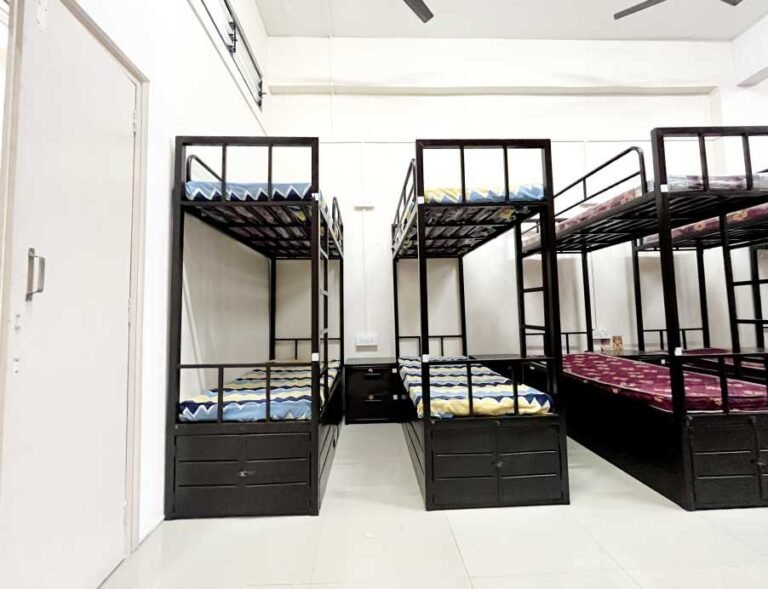The food and beverage industry demands materials that meet the highest standards of hygiene, safety, and durability. From processing equipment and storage tanks to countertops and piping systems, the choice of material directly affects product quality and safety. Among the various options available, Stainless Steel 304 Plates have emerged as one of the most widely used and trusted materials in this sector.
As an austenitic grade of stainless steel, 304 offers a unique combination of corrosion resistance, durability, and hygienic properties. This makes it a preferred material for manufacturers and engineers designing equipment for food processing, packaging, and distribution. Let’s explore in detail why Stainless Steel 304 Plates are considered essential in the food and beverage industry.
1. Excellent Corrosion Resistance
Food processing environments often expose equipment to moisture, acids, and salts. Materials that corrode easily can contaminate food and compromise safety. Stainless Steel 304 Plates contain 18% chromium and 8% nickel, which form a protective layer that resists oxidation and corrosion.
This makes them particularly suitable for:
-
Dairy processing equipment exposed to lactic acids
-
Beverage storage tanks holding carbonated drinks or juices
-
Food packaging units that require frequent cleaning
The ability to resist rust and staining ensures long service life, which is crucial in maintaining food quality.
2. Hygienic Properties
One of the most important requirements in the food and beverage industry is hygiene. The smooth, non-porous surface of Stainless Steel 304 Plates makes them easy to clean and sanitize. Unlike porous materials, they do not absorb food particles or bacteria.
Key benefits include:
-
Compliance with FDA and EU food safety standards
-
Resistance to biofilm and microbial growth
-
Easy sterilization with steam, hot water, or cleaning chemicals
This makes them a safe choice for surfaces that come into direct contact with food products.
3. Strength and Durability
Industrial food processing equipment is often subjected to mechanical stress, high temperatures, and heavy use. Stainless Steel 304 Plates offer excellent tensile strength and toughness, ensuring long-term durability.
Examples of usage include:
-
Fabrication of heavy-duty food processing machinery
-
High-pressure piping systems for beverages
-
Storage tanks designed to withstand rigorous daily operations
The durability of stainless steel reduces frequent replacement costs, making it an economical choice in the long run.
4. Resistance to Heat and Cold
Food processing involves both hot and cold operations—pasteurization, sterilization, refrigeration, and freezing. Stainless Steel 304 Plates perform exceptionally well across a wide range of temperatures.
-
At high heat, they resist scaling and oxidation.
-
At freezing temperatures, they maintain toughness without becoming brittle.
This versatility allows manufacturers to use 304 stainless steel in ovens, freezers, and boilers within the same facility.
5. Aesthetic and Functional Appeal
Beyond strength and hygiene, Stainless Steel 304 Plates also offer a sleek, polished appearance. This is especially beneficial in industries where aesthetics matter, such as commercial kitchens, breweries, and food retail outlets.
-
A clean, modern look improves brand presentation.
-
Surface finishing options (brushed, mirror, matte) enhance design flexibility.
Their combination of practicality and aesthetics makes them popular in front-end as well as back-end operations.
6. Cost-Effective Solution
While there are higher grades like 316 stainless steel, Stainless Steel 304 Plates offer an excellent balance between performance and cost. They are more affordable than premium grades yet provide sufficient corrosion resistance for most food applications.
-
Lower maintenance costs due to durability
-
Reduced downtime from equipment failures
-
Long lifespan leading to higher return on investment
This makes 304 stainless steel a cost-effective choice for small, medium, and large-scale food manufacturers.
7. Versatile Applications in Food and Beverage
The adaptability of Stainless Steel 304 Plates has made them indispensable across the industry. Some of the most common applications include:
-
Dairy Industry: Milk storage tanks, pasteurizers, and piping systems
-
Beverage Industry: Brewery equipment, wine storage tanks, soda filling systems
-
Food Processing: Meat grinders, conveyors, baking trays, and ovens
-
Commercial Kitchens: Countertops, sinks, and cooking equipment
-
Packaging Industry: Machinery for sealing, cutting, and filling food containers
Their versatility ensures that the same material can be used across multiple processing and handling stages.
8. Compliance with Food Safety Regulations
Government and international agencies enforce strict regulations for materials used in food and beverage processing. Stainless Steel 304 Plates meet the requirements of organizations like:
-
FDA (U.S. Food and Drug Administration)
-
NSF (National Sanitation Foundation)
-
EU standards for food-contact materials
Using compliant stainless steel ensures that manufacturers avoid regulatory issues while guaranteeing consumer safety.
9. Sustainability and Eco-Friendliness
In addition to performance, modern industries also value sustainable solutions. Stainless Steel 304 Plates are 100% recyclable, making them an eco-friendly material.
-
Recycling reduces environmental impact.
-
No harmful chemicals leach into food or beverages.
-
Supports sustainable manufacturing practices.
This makes stainless steel a preferred choice for companies focused on reducing their carbon footprint.
10. Long-Term Reliability
Ultimately, the food and beverage industry requires materials that deliver consistent performance. Stainless Steel 304 Plates provide long-term reliability in terms of hygiene, strength, and corrosion resistance.
This ensures that manufacturers can focus on production without worrying about frequent breakdowns or contamination issues.
Conclusion
From processing plants to commercial kitchens, Stainless Steel 304 Plates play an integral role in ensuring safety, hygiene, and efficiency in the food and beverage industry. Their excellent corrosion resistance, durability, and ease of cleaning make them the industry standard for equipment manufacturing.
Whether used in dairy, brewing, or packaging, 304 stainless steel offers the perfect combination of affordability and performance. For businesses aiming to maintain high food safety standards while ensuring cost efficiency, Stainless Steel 304 Plates remain the top choice.



